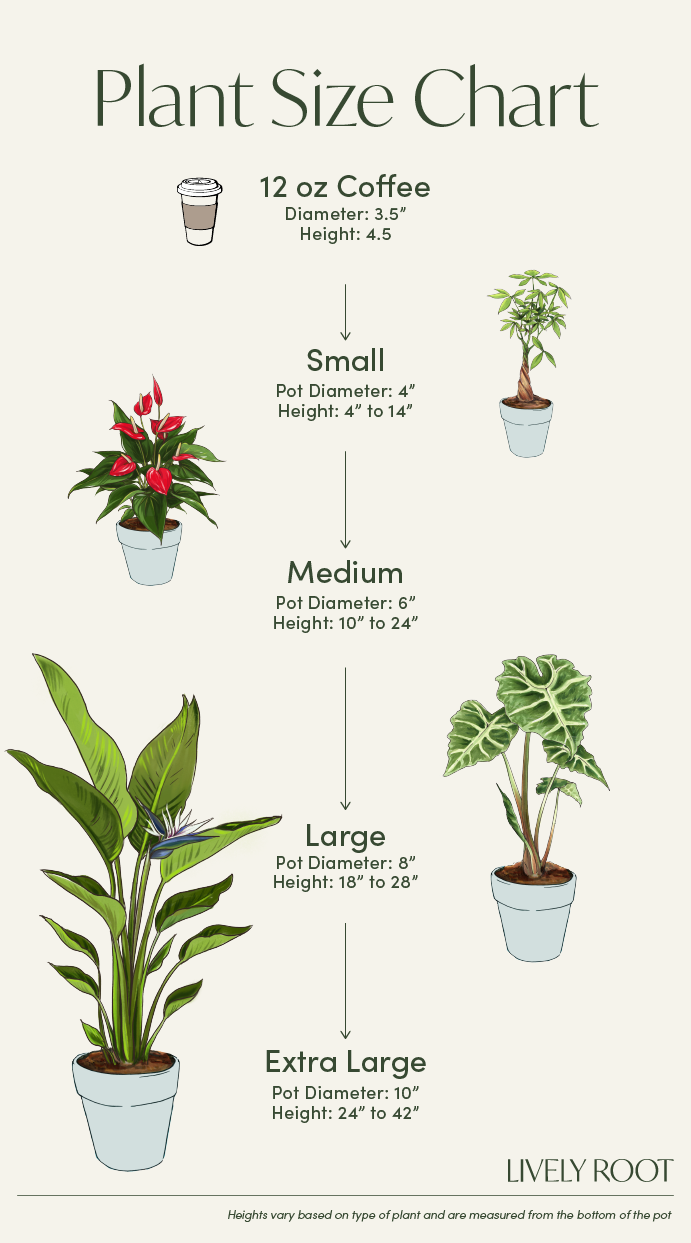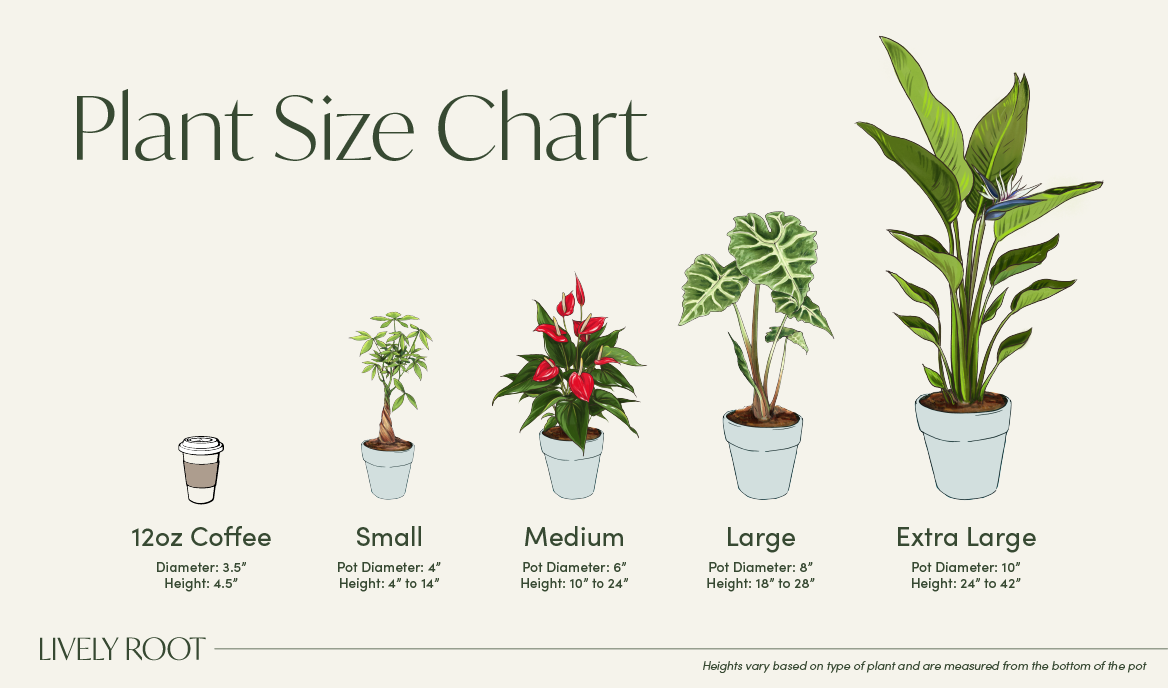

Zebra Plant Care Guide & Presentation

Loves bright indirect light. Never direct sunlight.
Keep the soil wet, being careful not to let it dry out or sit in standing water.
Add up to 60% humidity by adding a pebble tray filled with water, grouping with other plants or using a humidifier.
Avoid any sudden temperature changes. Keep humidity high in warmer temperatures.
Outside: Grow in morning light, partial shade (4-6 hours) where nights are above 45°F.
Indoors: The Zebra Plant prefers bright to medium, indirect light for at least six hours in a southern, eastern and western windows.
Fertilize every other week during their growing period. They usually require a lot of nutrients but can also be sensitive to excess. Keep an eye on your plant and dial in your feeding schedule if needed.
Don't rush to repot the zebra plant, it can actually thrive in tighter growing situations.
If you do decide to repot, do so in the spring before the plant comes out of its winter dormancy. Use a pot that’s only 1″ larger than its existing pot. Remove as much soil from the roots as possible without damaging them, and repot in fresh potting mix.
Trim off any dead or damaged stems to keep energy moving to the healthy leaves. Shower the leaves using a watering can with filtered or rainwater to remove dust. Remove any debris on the soil and replenish soil if needed.
Cuttings should be placed in a mix of perlite and moist peat. Cover them in plastic to retain their moisture. These cuttings should be 4-6″ in length. Place them in an area that’s 70-80°F and in indirect sunlight.
Aphelandra Zebra Plant: Overview
The Aphelandra Zebra Plant (Aphelandra squarrosa), also known as the Zebra Aphelandra plant or Saffron Spike Zebra plant, is a striking houseplant known for its glossy leaves marked with vivid white veins. This eye-catching plant belongs to the Acanthaceae family and originates from the tropical regions of Brazil. The Zebra plant is best grown in hardiness zones 11-12, making it suitable for indoor cultivation in most climates. It thrives in bright, indirect sunlight and is relatively easy to care for, provided you meet its specific needs.
Symbolically, the Aphelandra Zebra plant is associated with elegance and grace, making it a popular gift plant. It also produces beautiful yellow bracts with small flowers, adding a splash of color to its dramatic foliage. While commonly considered non-toxic, keeping it out of reach of pets is recommended as a precaution. It’s important not to confuse this plant with another popular Zebra plant, the Haworthia Zebra Plant (Haworthia fasciata), which is a succulent with entirely different care requirements.
Aphelandra Squarrosa: Benefits
- It has strong air-purifying properties, hence it improves indoor air quality.
- It brings an exotic aesthetic value to any indoor space.
- The plant’s unique appearance makes it a conversation starter and focal point.
- It’s an excellent plant for adding greenery and life to bedrooms and offices.
Aphelandra Zebra Plant: Care Guide
Caring for the Aphelandra Zebra Plant requires attention to its tropical growing needs. Here are some detailed care instructions.
Watering and Humidity
The Aphelandra Zebra [lant enjoys consistently moist soil but does not like to sit in water. Water your plant when the top inch of soil feels dry, ensuring that the pot has proper drainage to prevent waterlogging. The Zebra Aphelandra thrives in high humidity, so misting the leaves regularly or placing a humidifier nearby can help maintain the desired humidity levels. You can also place the pot on a tray filled with pebbles and water to increase humidity around the plant.
Light and Temperature
The Zebra plant Aphelandra prefers bright, indirect light. Direct sunlight can scorch the leaves, while too little light can result in leggy growth and poor flowering. Ideal indoor temperatures range between 65-75°F (18-24°C). Avoid placing the plant near drafts, air conditioners, or heaters, as sudden temperature changes can stress the plant.
Soil and Repotting
A well-draining, peat-based potting mix is ideal for the Aphelandra plant. You can use a mix designed for tropical plants or create your own by combining equal parts peat moss, perlite, and potting soil. Repotting should be done every 1-2 years in the spring to refresh the soil and provide more space for growth. Choose a pot one size larger than the current one and ensure it has drainage holes.
Feeding
During the growing season (spring and summer), feed your Zebra plant every two weeks with a balanced, water-soluble fertilizer diluted to half strength. In the fall and winter, reduce feeding to once a month or stop altogether, as the plant's growth slows down during this period.
Propagation
The Aphelandra Zebra plant can be propagated through stem cuttings. Take a cutting with at least two sets of leaves and plant it in a pot with a moist potting mix. Cover the pot with a plastic bag to maintain humidity and place it in bright, indirect light. Rooting should occur within a few weeks. Pruning is necessary to maintain the plant's shape and remove dead or damaged leaves. Prune this flowering plant in the spring before the growing season starts.
Pruning and Cleaning
Pruning is necessary to maintain the plant's shape and remove dead or damaged leaves. Prune this flowering plant in the spring before the growing season starts. Dust can accumulate on the large leaves of the Zebra plant, so wiping them down with a damp cloth every few weeks helps maintain their shine and allows for better photosynthesis.
Common Issues
Common issues include leaf drop, caused by overwatering or sudden temperature changes, and browning leaf edges, which indicate low humidity. Regularly inspect your plant for pests, such as spider mites and aphids, and treat any infestations promptly with insecticidal soap or neem oil.
Aphelandra Zebra Plant: Placement, Companion & Alternative Plants
The Aphelandra Zebra plant is a versatile addition to any indoor space. Here are some suggestions for placement and plant companions.
Best Locations & Uses
- Its air-purifying properties make it an excellent choice for improving indoor air quality.
- It symbolizes elegance and grace, making it a perfect gift plant.
- Commonly considered non-toxic, but keep it out of reach of pets as a precaution.
- It can be grown on a porch or patio in hardiness zones 11-12.
- Perfect for novice gardeners thanks to its easy-care needs and visually rewarding growth.
Companion Plants
Enhance the beauty of your indoor garden by pairing the Aphelandra Squarrosa with these companion plants:
- Variegated Laurentii Snake Plant (Sansevieria trifasciata 'Laurentii'): Easy to care for, the Laurentii Snake Plant shares similar humidity and light requirements.
- Peace Lily (Spathiphyllum): Another tropical plant that thrives in similar conditions, the Peace Lily offers beautiful white blooms.
- Calathea Orbifolia: Known for its striking foliage and similar care needs, the Calathea Orbifolia or Prayer Plant complements the Zebra plant beautifully.
Alternative Plants
Consider these pet-friendly alternatives to the Aphelandra for similar beauty and benefits.
- Boston Fern (Nephrolepis exaltata): Known for its lush foliage, the Boston Fern also has excellent air-purifying properties.
- Areca Palm (Dypsis lutescens): The Areca Palm, with its feathery fronds, adds a tropical feel and is safe for pets.
- Neanthe Bella Palm (Chamaedorea elegans): A low-maintenance indoor palm with a graceful appearance, the Neanthe Bella Palm is non-toxic to pets.
Buy Your Zebra Plant Aphelandra From LivelyRoot Today!
Elevate your indoor greenery with the Aphelandra Zebra plant from Lively Root! Shop now and enjoy the benefits of this unique plant in your home or office!




















